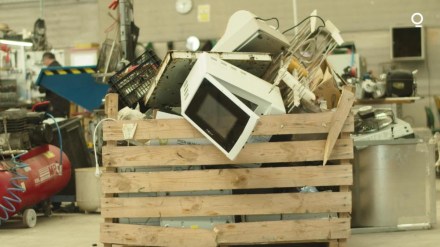Domestic e-waste recycling startups are gearing up to capitalise on a lucrative new revenue stream — recycling lithium-ion batteries used in electric vehicles (EVs) which are starting to reach the end of their usable life cycle.
Recyclers are looking to extract value from these spent EV batteries, which typically have a lifespan of 5-8 years. EVs started gaining popularity in India around 2017-18, so the first wave of batteries from those early models are now nearing the end of their life cycle and beginning to enter the recycling chain.
“The first set of EVs sold in India is about to retire now, and some of the batteries have already started coming back to the market for recycling,” said Nitin Gupta, co-founder and CEO of Attero Recycling, an e-waste firm established back in 2008 in Noida.
However, according to ALN Rao, CEO at Exigo, another reason for the surge is that several of these electric two- and-three-wheelers sold in the first wave are beginning to experience quicker deterioration in performance, requiring earlier battery replacement than expected.
“In the last 2-3 years, when the rules around FAME I, FAME II and PLI were not robust enough, many two-wheeler and e-rickshaw manufacturers were dumping cheap batteries paired with low-grade chips. The poor build quality and energy management led to quicker deterioration. These are the bulk of batteries that are being sent back currently and over the past year for recycling,” he said.
The emerging stream of end-of-life EV batteries has already begun having an impact on the volumes, revenues and profits of Indian recyclers. In FY22, BatX Energies saw Li-ion batteries sourced from EVs make up just 6-7% of its total recycling volume. Fast-forward a year to FY23 and this segment has more than doubled to around 15%. EV batteries are estimated to account for 56% of BatX’s recycling volumes at the end of FY24.
The trend is visible across the industry’s major players, according to data gathered by TheKredible. End-of-life batteries from EVs currently contribute 10% to Attero’s recycling volumes, a figure expected to triple by FY24-end as more batteries reach the end of their life cycle. For Lohum Cleantech, a newer startup, over 50% of its revenues are already derived from the EV battery recycling vertical spanning both domestic and international markets.
The financials validate the pivotal role this vertical has played. BatX turned profitable with Rs 12-lakh profit in FY23 after posting losses in the previous year, as its revenues surged over 4 times to Rs 22 crore. Lohum’s topline almost doubled to Rs 308 crore with profits of Rs 9 crore. Attero Recycling witnessed a 35% increase in revenue to Rs 289 crore in FY23, though profits dropped slightly to `21 crore, possibly due to increased investments.
Analysts and experts peg the recycling opportunity as immense in the coming years. A 2022 Niti Aayog report estimated that India’s cumulative potential for Li-ion batteries across sectors will be around 600 GWh between 2022 and 2030. Of this, an estimated 128 GWh will be available for recycling by 2030, with 46% expected to come from the EV segment alone.
With other major vehicle markets like Europe aggressively advancing EV adoption as well, the prospects look lucrative for Indian recyclers to expand their footprint globally. Europe recently announced a ban on sales of new petrol and diesel cars starting 2035. Over 20 governments have committed to phasing out internal combustion engine (ICE) vehicle sales within the next 10-30 years.
“We are seeing a lot of volume growth in the recycling markets internationally, driven by both older EV batteries coming back as well as increased manufacturing waste available for recycling,” Gupta said.
He further said that Attero’s plans for international expansion have been accelerated, with the firm slated to establish operations in the US and Europe in this year itself. The company’s overall projected annual capacity of 300,000 metric tonnes will be equally split across its facilities in India, the US and Europe in the coming years.
BatX is also expanding internationally with new plants scheduled to come up in the US and Malaysia by the end of 2024. Lohum has already expanded to the US, the UAE, and Europe over the past year, with new global facilities currently under construction.
